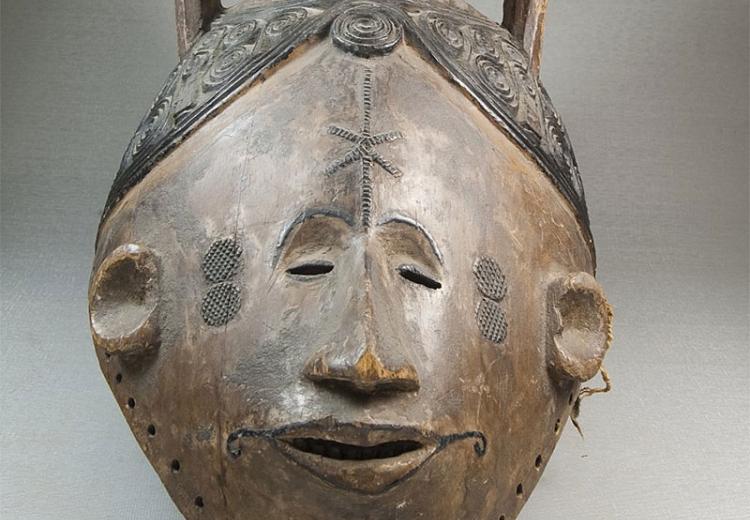Chinua Achebe’s 'New English' in Things Fall Apart

Maiden Spirit Mask (Agbogho Mmuo), 19th century.
"I feel that the English language will be able to carry the weight of my African experience. But it will have to be a new English, still in full communion with its ancestral home but altered to suit its new African surroundings."
—Chinua Achebe
Things Fall Apart, the first novel of Chinua Achebe, deals with the clash of cultures and the violent transitions in life and values brought about by British colonialism in Nigeria at the end of the 19th century. Published in 1958, just before Nigerian independence, the novel recounts the life of the village hero Okonkwo and describes the arrival of white missionaries in Nigeria during the late 1800s and their impact on traditional Igbo society.
Writing in English, the language of the imperialist conquerors of Nigeria, Achebe’s stated goal was to create a “new” and more African English. He integrated Igbo words and phrases, proverbs, folktales, and other elements of communal storytelling into the narrative in order to record and preserve African oral traditions and to subvert the colonialist language and culture.
The purpose of this lesson is to help students discover and evaluate this “new English” that has made Achebe “the father of African literature” and has placed Things Fall Apart on high school reading lists worldwide. This close reading exposes students to a unique point of view and foreign cultural experience and serves to expand their base of world literature. Students identify the linguistic and literary techniques Achebe uses to convey a sense of Igbo culture. They analyze the impact of the traditional oral elements to unlock the meanings and messages of the novel.
Guiding Questions
How does Achebe use and construct language to honor Igbo dialects and communicate to an English speaking reader?
Learning Objectives
Identify and analyze the use of Igbo vocabulary and similes as a marker of Achebe’s style
Identify and assess how proverbs and folktales function in Igbo culture
Develop appreciation for the values and traditions of an indigenous culture
Write an informative essay assessing Achebe’s efforts to use the English language to convey Nigerian culture and values
